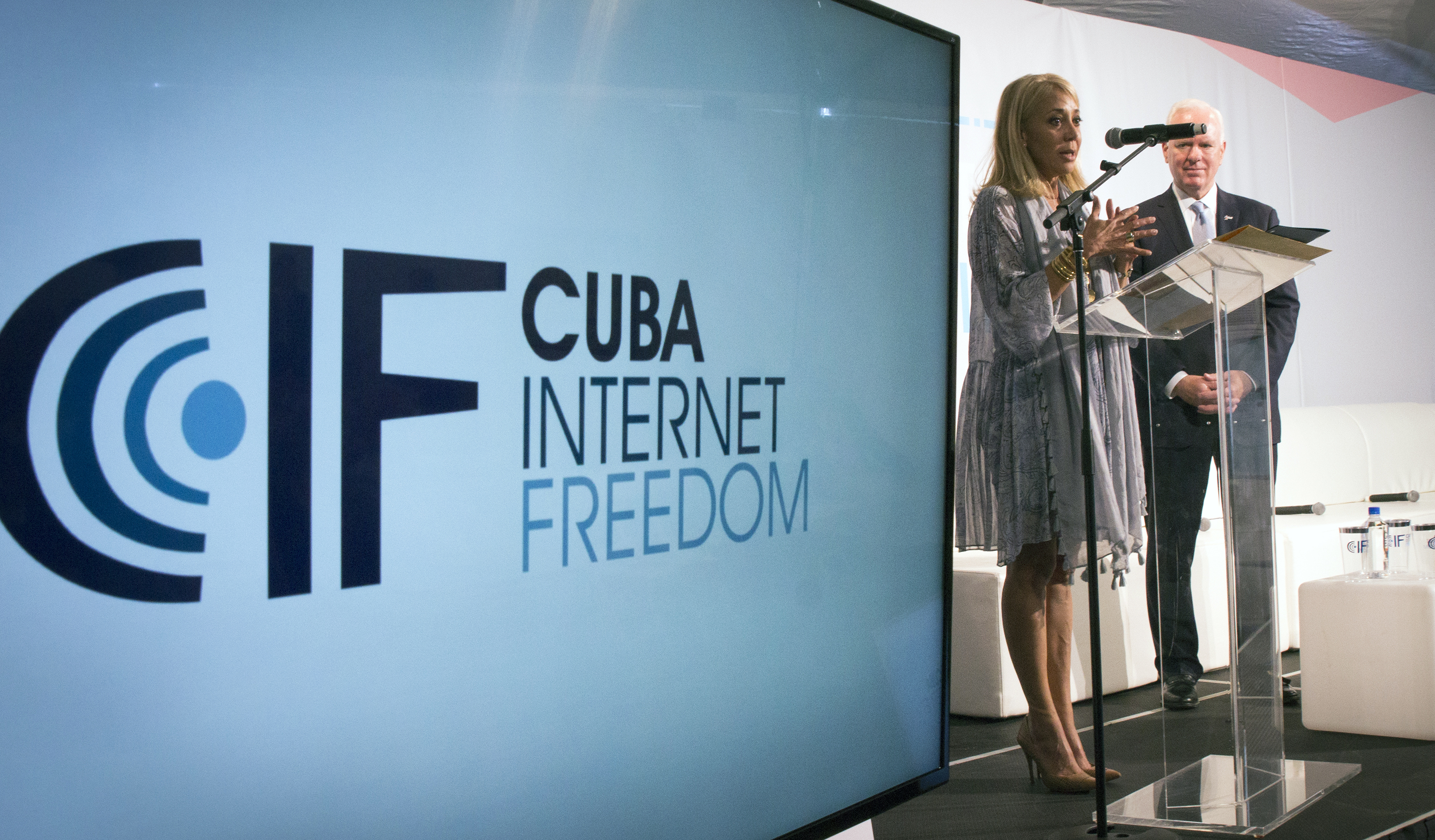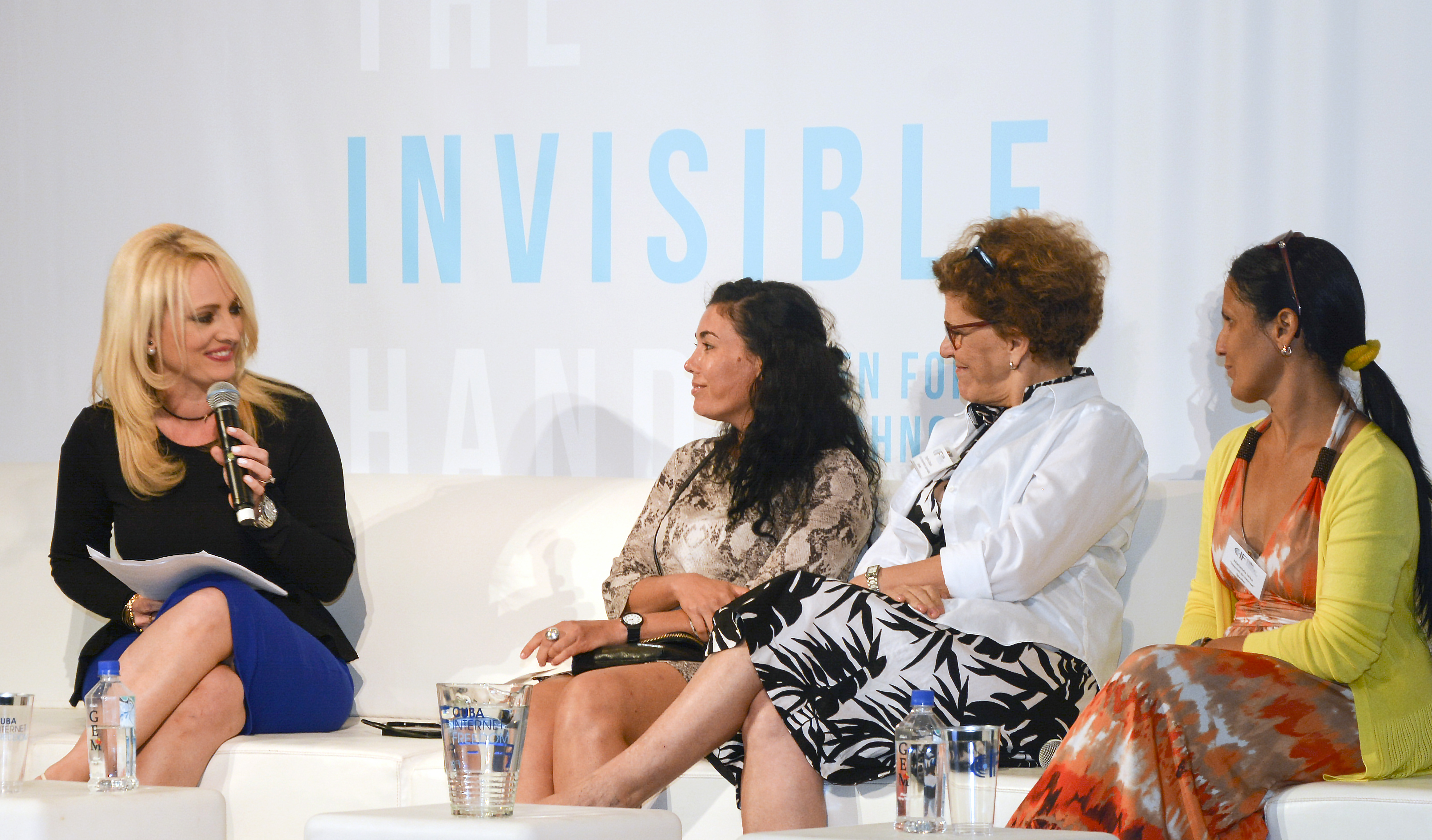President Obama’s visit to Cuba
Radio and TV Martí broke regular programming for the longest extended period in OCB history to provide comprehensive coverage of Obama’s historic visit to Cuba, which took place from March 20 to March 22, 2016. TV Martí alone aired 22 1⁄2 hours of live transmission to Cuba including—for the first time—live reports from Havana.
Hours of exclusive video was received from Martís independent journalists on the island and the OCB and VOA teams on location, all used throughout all of the platforms and picked up by the general market media.
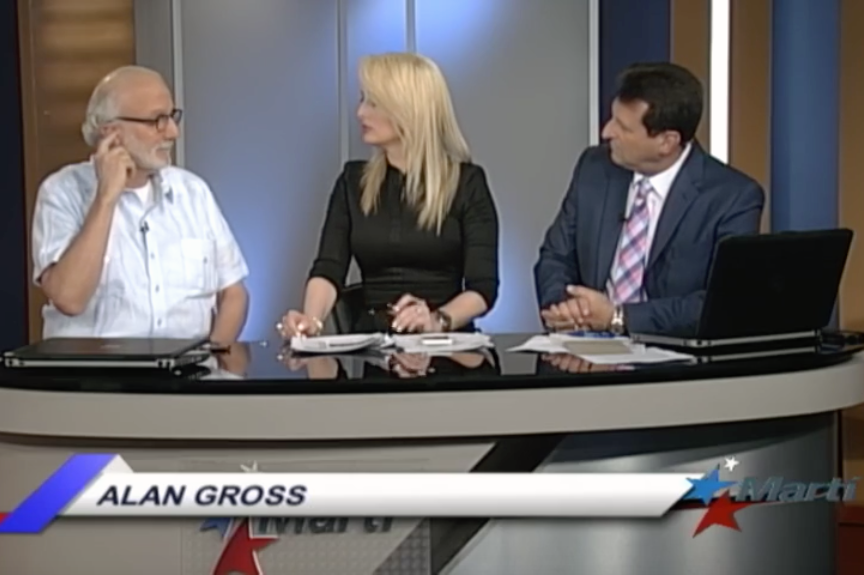
Alan Gross appeared as an analyst on TV Martí during coverage of President Obama’s address to the Cuban people.
The Martís also provided expert analysis with in-studio and on-island guests from all sides of the political spectrum, ranging from current and former U.S. diplomats to Cuban dissidents, religious leaders and citizens from all walks of life. Alan Gross, the American aid worker released in 2014 after being imprisoned in Cuba for five years, provided analysis and commentary on President Obama’s speech to the Cuban people at el Gran Teatro de La Havana.
Cuban migrant crisis
In 2016, hundreds of Cubans trying to reach U.S. soil by crossing various Latin American countries were left stranded in Colombia and Ecuador in terrible conditions. The Martís sent a crew to Turbo, Colombia, and to Quito, Ecuador, to report on the crisis of the Cuban migrants. National and international media outlets picked up the Martís’ stories that showed families being separated in the journey, Cubans dying in the jungles and migrants living in deplorable conditions.
Human rights violations
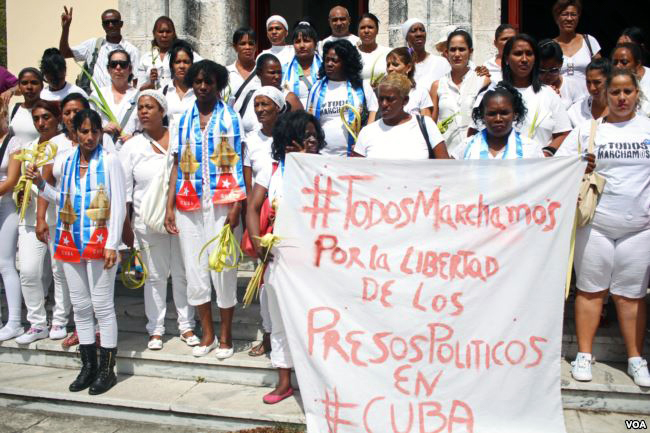
Las Damas de Blanco (The Ladies in White) protest in Havana, Cuba. March 20, 2016.
(V. Macchi/VOA)
Every Sunday in 2016, the “Ladies in White” movement marched peacefully through the streets of Havana honoring family members that are political prisoners. The Martís closely followed the continuous detentions of the “Ladies in White” and their leader, Berta Soler. Government security forces beat, arrested and harassed marchers on many occasions in front of our cameras.
The Martís also covered the case of political dissident Guillermo Fariñas, recipient of the Sakharov Prize for Freedom of Thought by the European Parliament in 2010. Fariñas has conducted more than 20 hunger strikes to protest the Cuban government’s human rights violations. In September, during a 53-day hunger strike, Fariñas collapsed and was sent to the hospital in critical condition.
Both Soler and Fariñas visited the Martís in Miami towards the end of the year and personally thanked the staff members for “giving them a voice” and for spreading their story around the world resulting in international support from the significant number of media pickups.
Hurricane Matthew
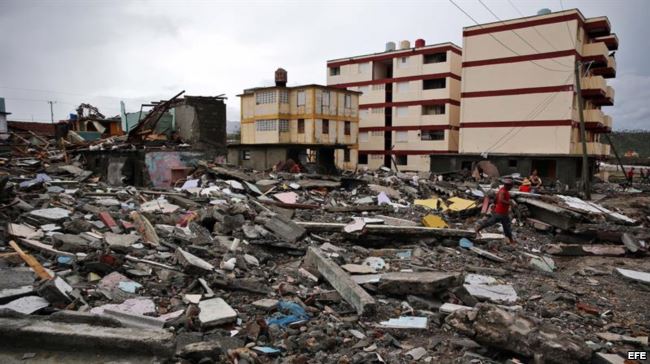
Cubans recover from the destruction and damage caused by Hurricane Matthew in Baracoa, Cuba.
In October, as category four Hurricane Matthew battered Baracoa, Radio Martí offered 25 hours of continuous special programming and took live calls from the affected areas. Coverage included reports from the National Hurricane Center about the impact of Hurricane Matthew in Cuba and phone calls with citizens and journalists on the island on the country’s preparedness plans. Many reports from Cuba came via Facebook, Twitter and e-mail.
U.N. vote on U.S. embargo of Cuba
The Martís also provided extensive coverage of the historic vote in the United Nations General Assembly on October 26 in which, for the first time in 25 years, the United States abstained instead of voting against a measure that was introduced by Cuba condemning the U.S. embargo. The Martís also broadcast the speech of the U.S Ambassador to the U.N., Samantha Power, who explained the U.S. vote and why the country chose to abstain rather than vote against the Cuban measure. The Martís also spoke with Cubans on the island and broadcast their reactions to the vote.
Death of Fidel Castro
The end of 2016 was marked by the death of Communist leader Fidel Castro. The Martís network of independent journalists on the island immediately filed reports that provided Cuban audiences with information not covered by the state government media. Special coverage was provided throughout the weekend including the arrests of dissidents openly commenting on the passing of Castro.
VOA filed multiple stories for its affiliates throughout Latin America on the U.S. perspective on Cuba after Castro.
“Keep informing the Cuban people as you have done all these years. Thanks to all, from a Cuban eager to know the truth.”
– A Martí Facebook follower in Havana

Cuba Internet Freedom Conference
In September, the Office of Cuba Broadcasting hosted the first-ever Cuba Internet Freedom Conference (CIF), an event that brought together digital innovators and independent journalists from Cuba with other individuals focused on improving digital rights and fostering uncensored access to information for the island.
At the two-day event in Miami, developers, policy makers, nonprofit professionals, entrepreneurs, concerned citizens and others gathered with Cuban internet innovators to exchange ideas on how to improve access to the Internet on the island, as well as how to educate people about the current state of the internet in Cuba.
Through a series of yearlong special projects, OCB continued to provide Cuban audiences with innovative ways to access the internet. These projects include an internet freedom awareness campaign, advice on accessing alternate routes to the internet and the improvement of anti-censorship tools and mechanisms.
